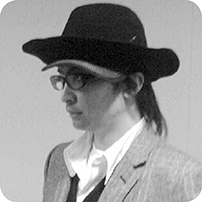|
| Challenges to New Species in the Experimental Analysis of Behavior: How to Conduct Animal Studies |
| Sunday, September 27, 2015 |
| 1:00 PM–3:00 PM |
| Kokin Ballroom |
| Area: AAB; Domain: Applied Behavior Analysis |
| BACB CE Offered. CE Instructor: Kazuchika Manabe, Ph.D. |
| Chair: Toshikazu Kuroda (Aichi Bunkyo University) |
| Presenting Authors: : KAZUCHIKA MANABE (Nihon University) |
| Abstract: B. F. Skinner developed his experimental chamber in the early 20th century. After the invention and the innovation of the Skinner box, Skinner and co-workers studied a broad range of schedules of reinforcement using rats and pigeons. In turn, the study of reinforcement schedules in the Skinner box has uncovered general behavioral laws and species-specific phenomena of animals, including rats and pigeons. To explore even more general or species-specific phenomena in organisms, researchers are using other species that have not yet been examined. To conduct experiments using such new species, developments of adequate apparatus and experimental procedures are necessary. Here we will provide several developmental stories of success and failure in animal experiments using budgerigars, penguins, kites, sea eagles, and zebrafish. These stories describe several fundamental procedures that must be specialized for each species: methods of deprivation, choice of response, ways of shaping, development of manipulanda, choice of reinforcer, and the development of a specialized feeder. In summary, this tutorial will present several tips to conduct animal studies and show that problems can be solved by a little ingenuity. |
| |
| KAZUCHIKA MANABE (Nihon University) |
 Kazuchika Manabe received his undergraduate degree from Nihon University and his MA and PhD from Meisei University. His doctoral adviser was Takashi Ogawa, who imported the first Skinner box from B. F. Skinner to Japan. Dr. Manabe had the good fortune to be a post-doc of J. E. R. Staddon at Duke University and of R. J. Dooling at the University of Maryland. After completing post-doctoral research, he returned to Japan. He is a senior professor of the doctoral program at the Graduate School of Social Cultural Studies at Nihon University in Tokyo. His research concerns schedules of reinforcement, discrimination learning, stimulus equivalent, choice and perception in pigeons, monkey, budgerigars, penguins, white-tail sea eagles, and so on. His current particular interest is the development of a behavioral experimental system for zebrafish, which is a species of special interest for many biological researchers, including behavioral scientists. He served as editor of Japanese Journal of Behavior Analysis and remains on its editorial board. He is on the executive board of the Japanese Association for Behavior Analysis and the board of the Japanese Psychological Association. Kazuchika Manabe received his undergraduate degree from Nihon University and his MA and PhD from Meisei University. His doctoral adviser was Takashi Ogawa, who imported the first Skinner box from B. F. Skinner to Japan. Dr. Manabe had the good fortune to be a post-doc of J. E. R. Staddon at Duke University and of R. J. Dooling at the University of Maryland. After completing post-doctoral research, he returned to Japan. He is a senior professor of the doctoral program at the Graduate School of Social Cultural Studies at Nihon University in Tokyo. His research concerns schedules of reinforcement, discrimination learning, stimulus equivalent, choice and perception in pigeons, monkey, budgerigars, penguins, white-tail sea eagles, and so on. His current particular interest is the development of a behavioral experimental system for zebrafish, which is a species of special interest for many biological researchers, including behavioral scientists. He served as editor of Japanese Journal of Behavior Analysis and remains on its editorial board. He is on the executive board of the Japanese Association for Behavior Analysis and the board of the Japanese Psychological Association. |
| Keyword(s): reinforcement schedules, Skinner box |
|
| |
| |
|
| The Errorless Teaching of Swallowing for a Child Vomiting Meals |
| Sunday, September 27, 2015 |
| 3:30 PM–5:30 PM |
| Kokin Ballroom |
| Area: DDA; Domain: Applied Behavior Analysis |
| BACB CE Offered. CE Instructor: Kenji Okuda, M.Ed. |
| Chair: Koji Takeshima (Autism Consultation Room) |
| Presenting Authors: : KENJI OKUDA (Academy of Behavioral Coaching) |
| Abstract: A case of eating disorder (the psychogenic inability to swallow food in the context of phobia) was treated by a combination of exposure using the errorless teaching approach. A 4-year-old girl, who began to have difficulty in swallowing since having an accident during mealtime at home, was trained by a behavior therapist. Changes were assessed on the basis of video recordings of daily frequency of spitting the food out and her monthly weight within a multiple baseline design across settings. The therapist demonstrated the procedures on her behavior in front of her mother just one time. After this session, the girl’s food spitting behavior no longer occurred immediately. By contrast, a normal swallowing behavior occurred, which was valid for eating tough meat. This outcome has been maintained through five months of follow-up, and the girl recovered her body weight. These procedures—exposure, the errorless teaching approach, and some techniques of respondent conditioning—will be shown by video. |
| |
| KENJI OKUDA (Academy of Behavioral Coaching) |
 Kenji Okuda, MEd, is a founder, an executive director, and a therapist of ABA SOLUTION. He found remarkable improvements and even "recovery" among children who received early, intensive, home-based ABA treatment. In 1999, he was awarded one of the Clinical Psychology Society of Japan’s highest honors: the Kikuo Uchiyama Memorial Award. Also, he has been awarded the Japan Society for Studies on Educational Practices' award of the year in 2003, for his series of successful studies about "theory of mind" teaching program. In 2008, he was awarded the Japanese Association for Behavior Analysis (J-ABA) Best Article Award. A highly recognized clinical psychologist in Japan, he is invited by families from all over the world who need his training and consultation. He is a Certified Behavior Therapist Advanced, a Certified Clinical Psychologist, a Certified School Psychologist, and a Certified Autistic Spectrum Specialist Expert by each association in Japan. He has published articles in the areas of functional language acquisition, cognitive language understanding, theory of mind, social skills, severe behavioral disturbance, parent training, toilet training, play, leisure skills, etc., and has presented papers at numerous national and international conferences. Further, he's using ABA in Nagano at the first established ABA kindergarten in Japan. He has also been featured in news reports and is a consultant for major TV programs for children and parents. Kenji Okuda, MEd, is a founder, an executive director, and a therapist of ABA SOLUTION. He found remarkable improvements and even "recovery" among children who received early, intensive, home-based ABA treatment. In 1999, he was awarded one of the Clinical Psychology Society of Japan’s highest honors: the Kikuo Uchiyama Memorial Award. Also, he has been awarded the Japan Society for Studies on Educational Practices' award of the year in 2003, for his series of successful studies about "theory of mind" teaching program. In 2008, he was awarded the Japanese Association for Behavior Analysis (J-ABA) Best Article Award. A highly recognized clinical psychologist in Japan, he is invited by families from all over the world who need his training and consultation. He is a Certified Behavior Therapist Advanced, a Certified Clinical Psychologist, a Certified School Psychologist, and a Certified Autistic Spectrum Specialist Expert by each association in Japan. He has published articles in the areas of functional language acquisition, cognitive language understanding, theory of mind, social skills, severe behavioral disturbance, parent training, toilet training, play, leisure skills, etc., and has presented papers at numerous national and international conferences. Further, he's using ABA in Nagano at the first established ABA kindergarten in Japan. He has also been featured in news reports and is a consultant for major TV programs for children and parents. |
| Keyword(s): errorless teaching, exposure, respondent conditioning |
|
| |